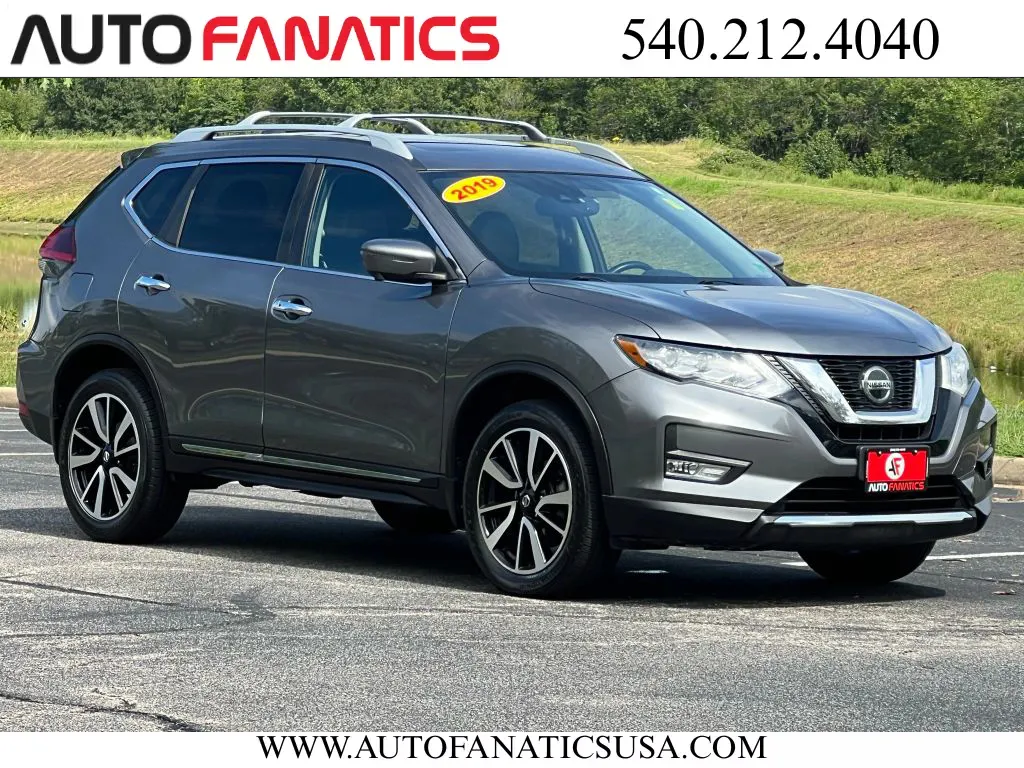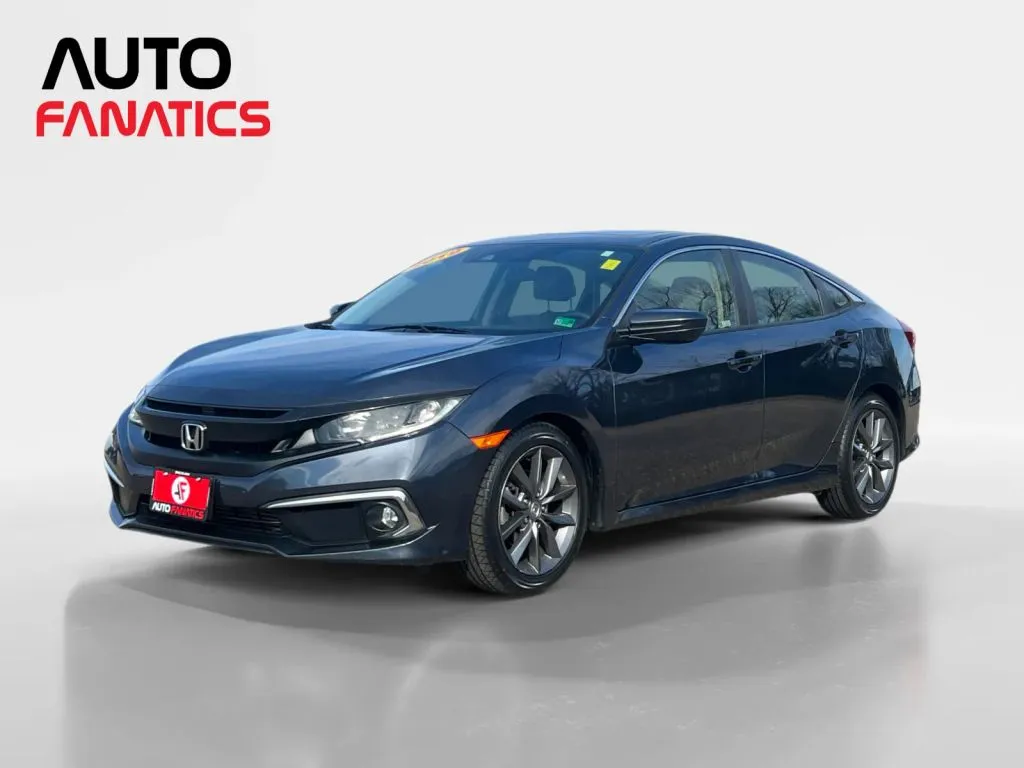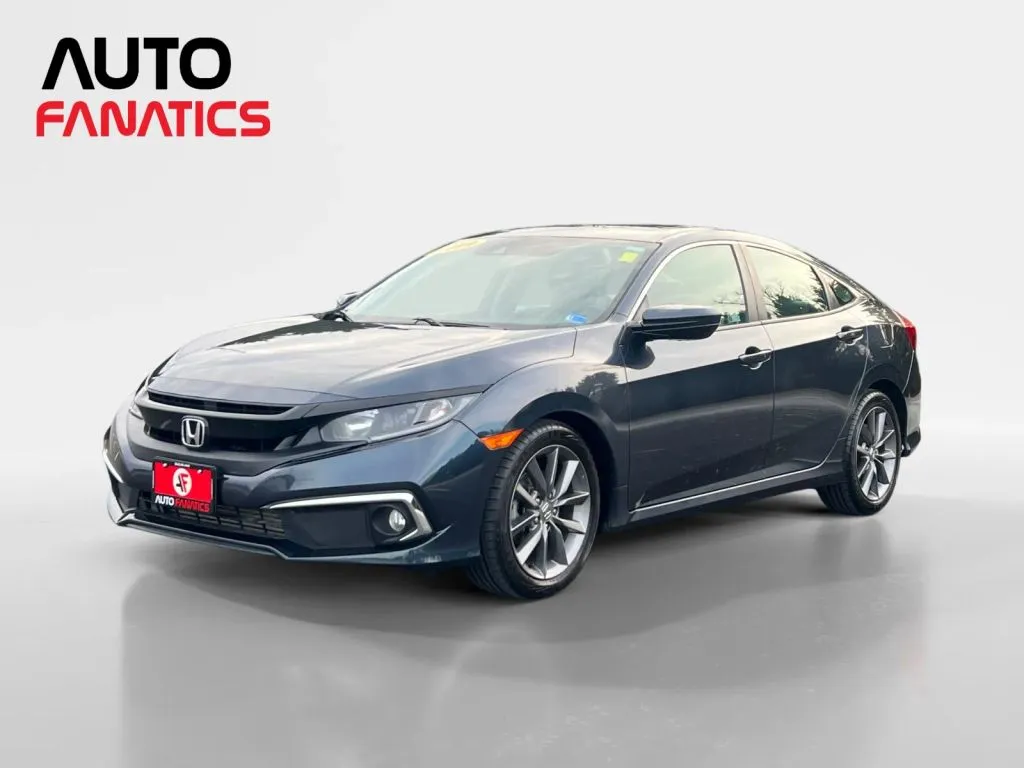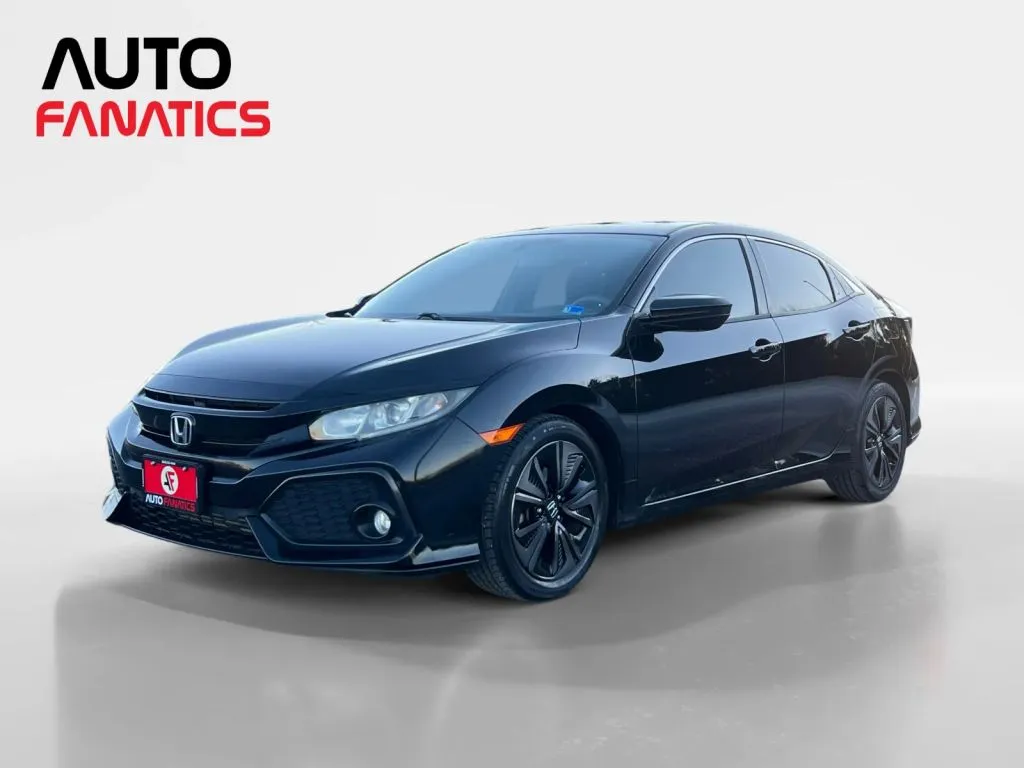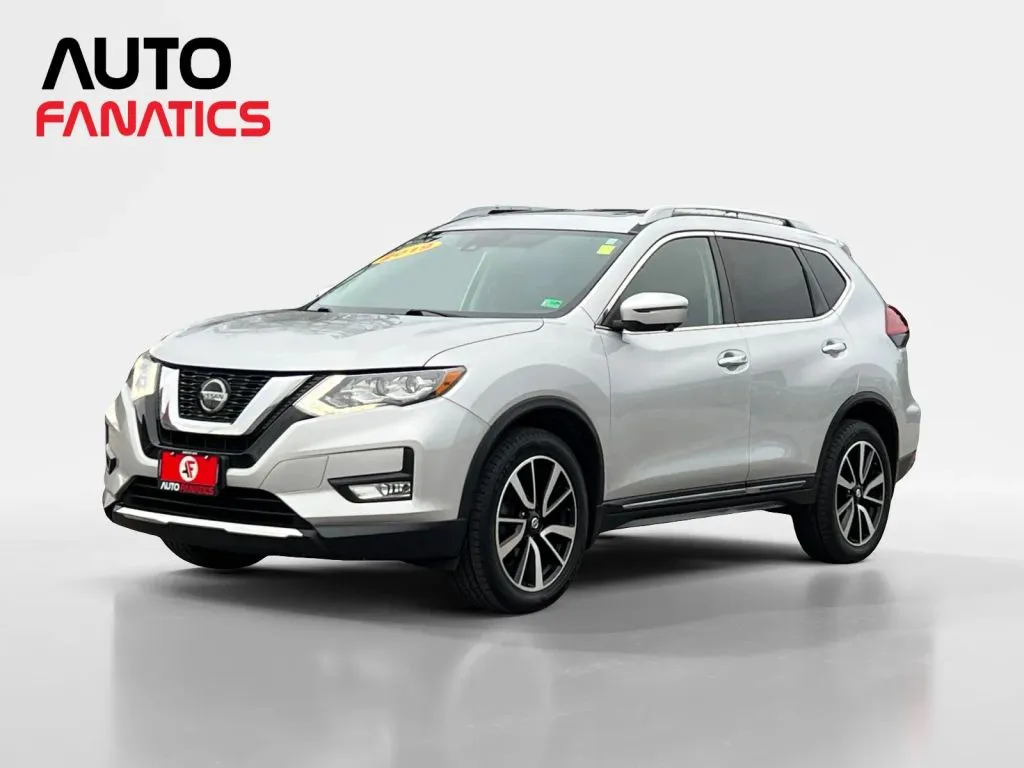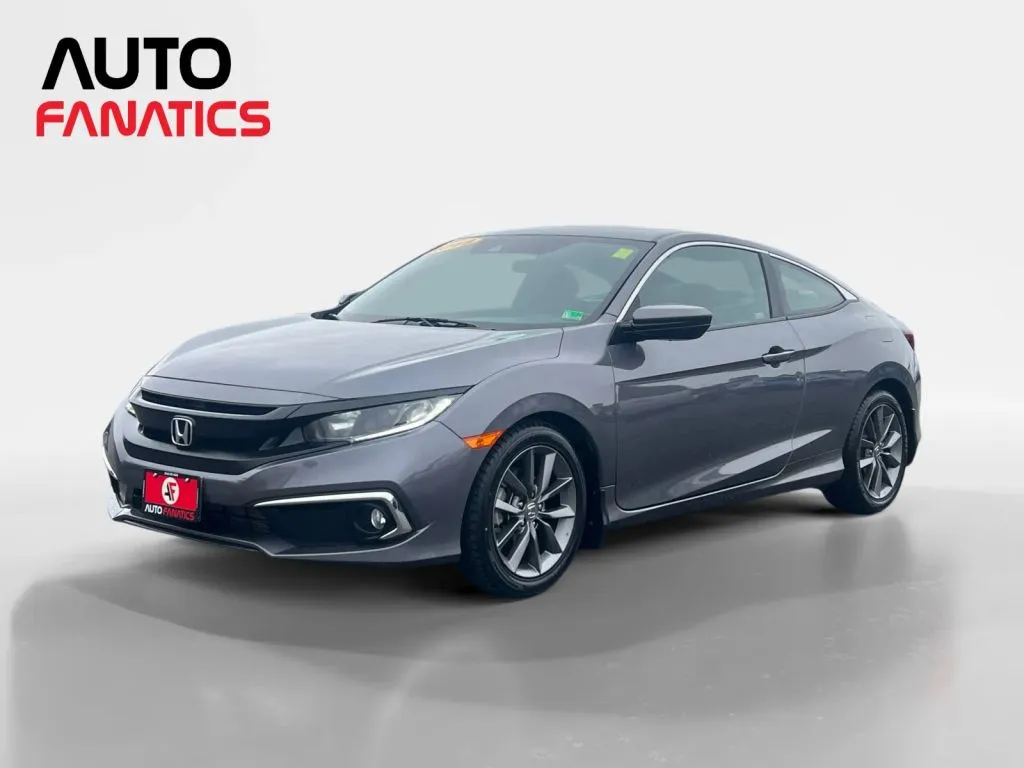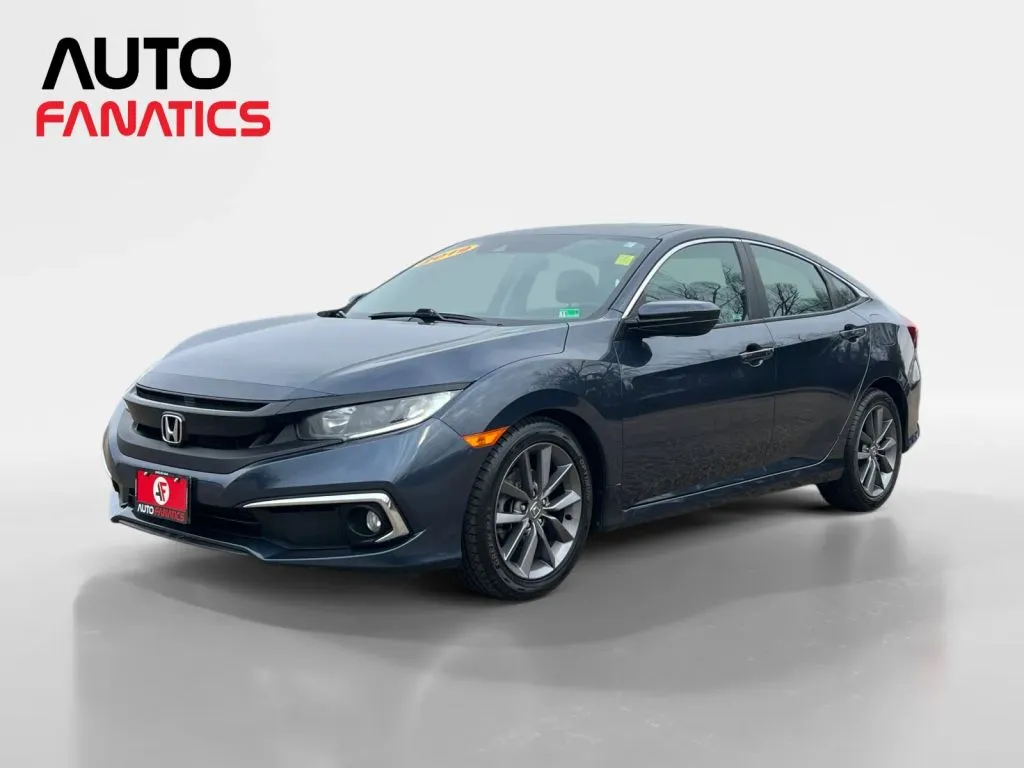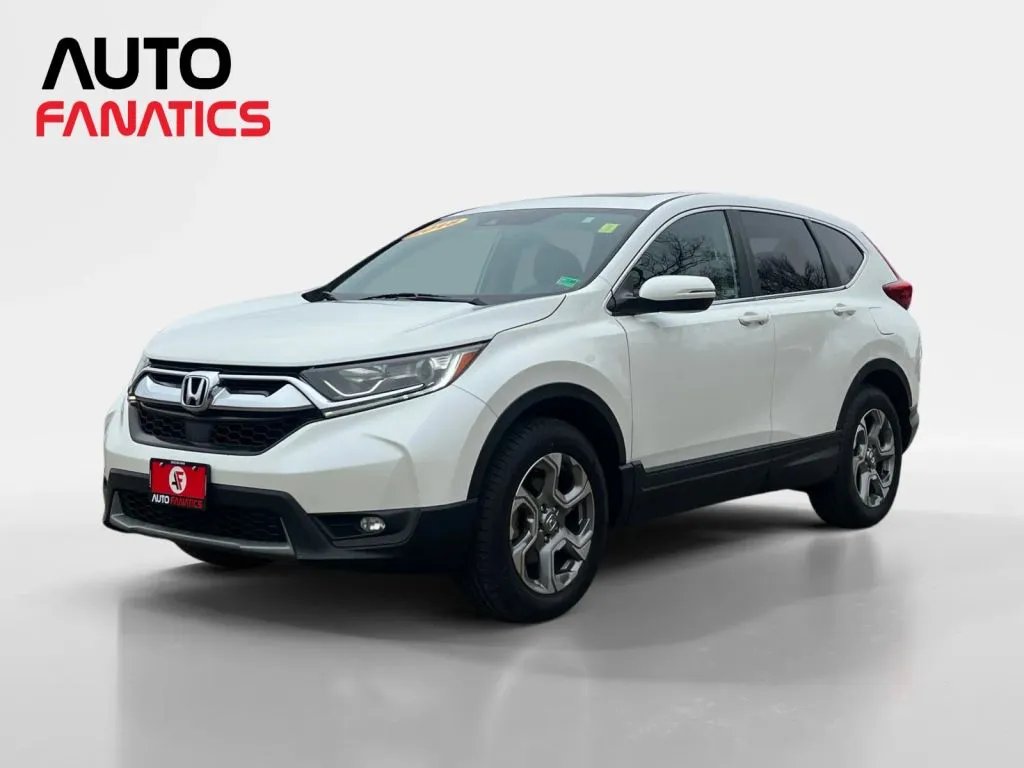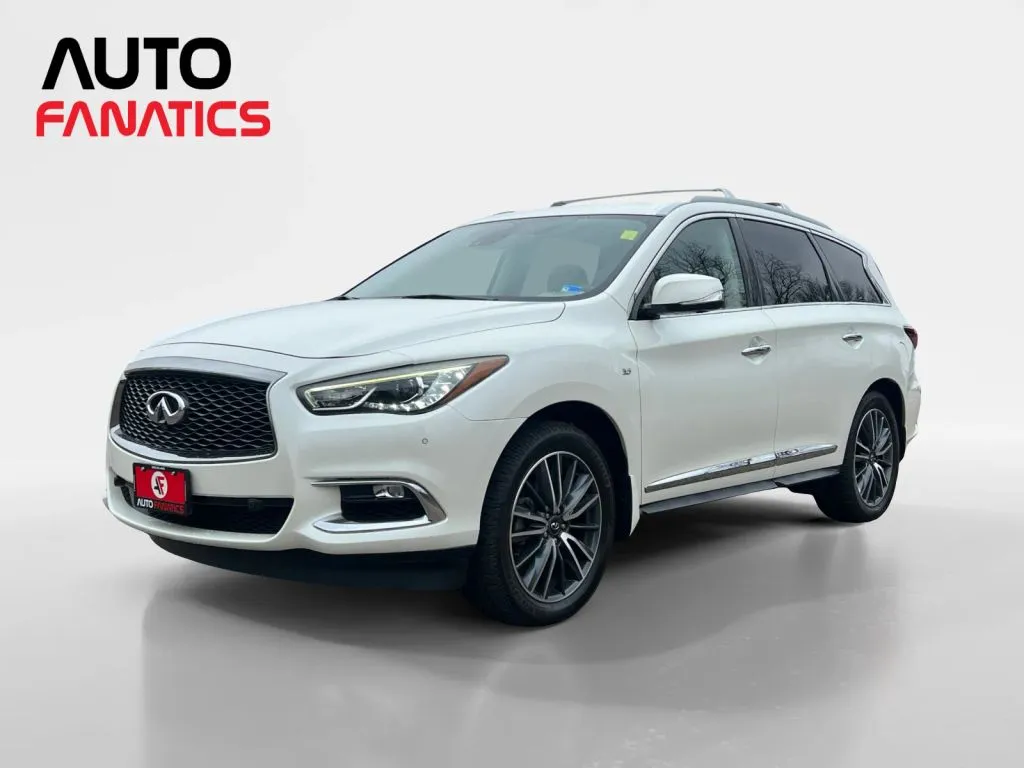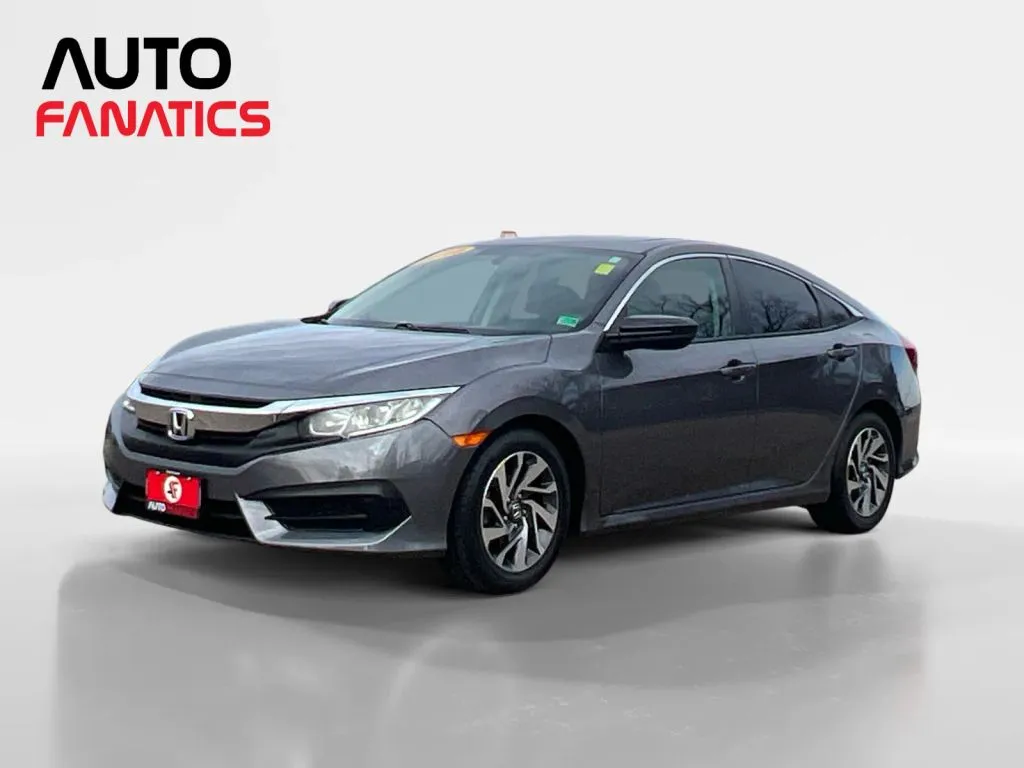Reliable Used Pickup Trucks: The Most Dependable Picks for 2026
Table of Contents
- Key Takeaways
- The Anatomy of a Reliable Truck
- What to Look for in an Engine
- Transmission and Drivetrain
- Frame Strength and Build Quality
- Modern Safety and Tech Features
- The Importance of a Clean Service History
- Top Reliable Used Pickup Trucks
- Nissan Frontier
- Ford F-250 Super Duty
- Ram 3500
- Toyota Tacoma
- Ford F-150
- Keep Your Truck Reliable: A Maintenance Checklist
- Engine and Oil Care
- Transmission Fluid and Filters
- Brake System Checks
- Suspension and Steering Inspection
- Electrical System Health
- How to Prevent Rust
- Your Used Truck Buying Checklist
- Key Mechanical Inspection Points
- How to Verify a Service History
- What to Feel for on a Test Drive
- Check the Market Value
- Plan Your Financing
- Decoding Modern Truck Tech
- New Engine Technology
- Advanced Transmissions
- Today's Safety Systems
- Features for Better Fuel Efficiency
- Smart Towing Technology
- Where to Find Your Next Reliable Truck
- Auto Fanatics (Fredericksburg's 5-Star Dealer)
- Certified Pre-Owned (CPO) Programs
- Online Marketplaces
- Buying from a Private Seller
- Pro Tips to Extend Your Truck's Lifespan
- Stick to a Service Schedule
- Manage Your Payload
- Store Your Truck Properly
- Follow Towing Best Practices
- Protect it From the Elements
- Related Articles
- Frequently Asked Questions
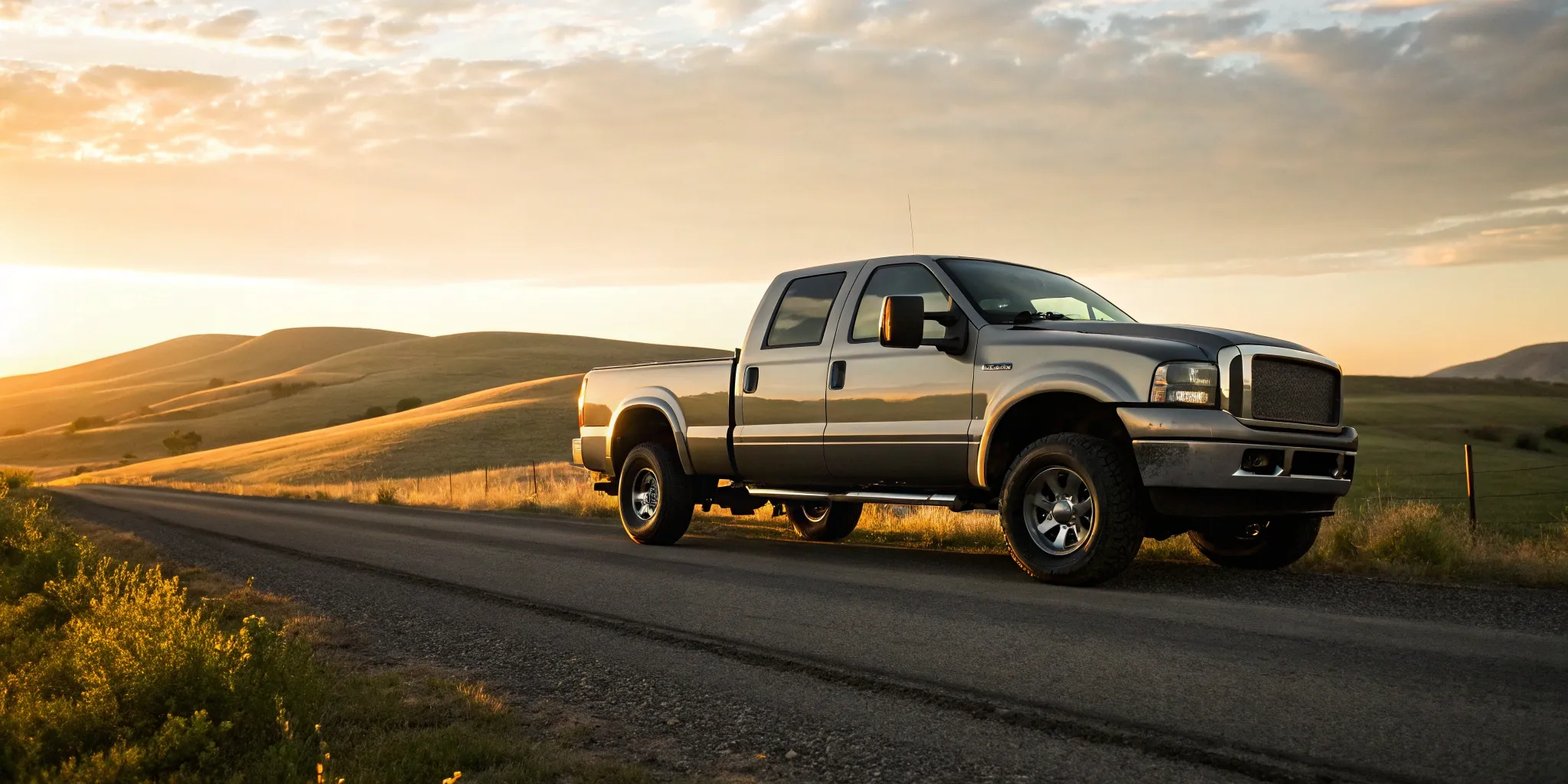
When it comes to trucks, the word "reliable" gets thrown around a lot, but what does it actually mean? True reliability isn't just a marketing slogan; it's proven by years of real-world performance and backed by data from owners and experts alike. Some trucks have simply earned their reputation for being nearly indestructible. In this guide, we’ve sifted through the reviews, studies, and long-term tests to identify the models that consistently stand up to the toughest demands. We’ll show you what makes these vehicles so durable and give you a definitive list of the most reliable pickup trucks, so you can make a smart, informed decision based on facts, not just feelings.
Key Takeaways
- Look beyond the badge for true durability: A reliable truck is defined by its core components—like a proven engine and a solid frame—and a well-documented service history is the best proof of its past care and future performance.
- Your habits directly impact your truck's lifespan: The most effective way to ensure longevity is through consistent care. Stick to the recommended maintenance schedule, respect payload and towing limits, and keep it clean to prevent long-term damage.
- A smart purchase starts before the test drive: Prepare for your search by researching market values and arranging your financing first. This allows you to focus on what really matters during the inspection: finding a truck that's in great mechanical shape.
The Anatomy of a Reliable Truck
Finding a reliable truck goes deeper than just picking a brand you like. It’s about understanding what makes a truck tick—and what keeps it ticking for years to come. Think of it like a team: every player has a crucial role, and the truck is only as strong as its weakest part. From the engine that provides the power to the frame that holds it all together, each component contributes to its overall durability and performance. When you know what to look for under the hood and beyond, you can confidently choose a vehicle that’s built to last.
Whether you need a truck for heavy-duty work or weekend adventures, paying attention to these core elements will help you separate the solid contenders from the ones that might cause headaches down the road. We’ll break down the key parts of a dependable truck so you can feel empowered during your search. At Auto Fanatics, we carefully inspect every one of our used trucks to ensure they meet these high standards, giving you peace of mind from the moment you start browsing.
What to Look for in an Engine
The engine is the heart of any truck, and its design and history are major predictors of longevity. You don’t need to be a mechanic, but knowing which engines have a reputation for durability can make all the difference. Some brands are simply known for building power plants that last. For instance, one study highlighted that Toyota is a top brand for vehicles that go the distance, making trucks like the Tundra and Tacoma a solid bet. When inspecting a used truck, listen for a smooth-running engine without any strange noises, and always check for signs of leaks.
Transmission and Drivetrain
The transmission and drivetrain are responsible for transferring power from the engine to the wheels. A healthy transmission shifts smoothly without hesitation or clunking sounds. Some models have specific quirks or strengths to be aware of. For example, certain newer trucks with a 5.3-liter engine become even more reliable if a feature known as Active Fuel Management (AFM) has been professionally removed. A well-maintained drivetrain is essential for both performance and long-term reliability, so it’s a system that deserves close attention during your test drive.
Frame Strength and Build Quality
A truck’s frame is its backbone, and its strength is non-negotiable for durability. This is especially true if you plan on towing or hauling heavy loads. Heavy-duty trucks often have the best chance of reaching high mileage because they are built with more robust frames and components designed for rigorous use. When you’re looking at a used truck, always inspect the frame for signs of excessive rust or damage, as this can compromise its structural integrity. A solid, well-built frame is the foundation of a truck that will serve you well for years.
Modern Safety and Tech Features
Reliability isn't just about mechanical endurance anymore. Modern safety and tech features play a huge role in a truck's overall performance and your confidence on the road. Many recent-model used trucks come equipped with advanced driver-assist systems like blind-spot monitoring, automatic emergency braking, and sophisticated traction control. These technologies not only help prevent accidents but also reduce strain on the vehicle's components. Features like advanced engine diagnostics can also alert you to potential issues before they become major problems, contributing to a longer, healthier vehicle life.
The Importance of a Clean Service History
Even the most well-built truck can become unreliable without proper care. A complete and consistent service history is one of the best indicators of a truck's future performance. Regular oil changes, fluid checks, and adherence to the manufacturer's maintenance schedule are crucial for preventing premature wear and tear. When you’re shopping, always ask for the vehicle’s service records. A truck with a documented history of regular maintenance is a much safer investment than one with a questionable past. It shows the previous owner cared, which is a great sign for you.
Top Reliable Used Pickup Trucks
When you're investing in a truck, you want something that's built to last. We've sifted through owner reviews, reliability studies, and expert opinions to bring you a list of trucks that consistently prove their mettle. These are the models known for hitting high mileage with fewer headaches, giving you peace of mind on the road and at the job site. Whether you're hauling equipment or heading out for a weekend adventure, these used trucks have a track record you can count on. Let's get into the top contenders.
Toyota Tundra (The High-Mileage Hero)
The Toyota Tundra has earned a legendary reputation for longevity, and for good reason. Owners often describe older models as "bulletproof," with many trucks easily surpassing the 200,000-mile mark. There's even a famous case of a Tundra hitting a million miles on its original engine. This isn't just anecdotal; Consumer Reports consistently highlights the Tundra as a vehicle that goes the distance. If you’re looking for a full-size truck that you can depend on for years to come, the Tundra is an incredible choice.
Chevrolet Silverado/GMC Sierra
The Chevrolet Silverado and its corporate cousin, the GMC Sierra, are mainstays on American roads, known for their capability and comfort. Newer models equipped with the dependable 5.3L V8 engine are particularly praised for their reliability. Some owners suggest disabling the Active Fuel Management (AFM) system to prevent potential lifter issues down the road, a common modification in the truck community. Like the Tundra, these trucks are also recognized by experts for their ability to rack up serious mileage, making them a solid investment for any truck buyer.
Nissan Frontier
Don't overlook the Nissan Frontier, a mid-size pickup that has quietly built a reputation for being tough and reliable. The second-generation models, spanning from 2005 to 2021, are especially well-regarded. Many owners point to the V6 engine as the one to get, praising its straightforward design and durability. For those who enjoy a more connected driving experience, pairing that V6 with a six-speed manual transmission creates a nearly indestructible combination. It’s a no-frills workhorse that gets the job done without fuss.
Ford F-250 Super Duty
When you need serious hauling and towing power, the Ford F-250 Super Duty steps up. Models from 2008 to 2010 are often cited for their robust build and durability. These heavy-duty trucks were made to handle the toughest jobs. However, it's smart to be thorough during your inspection. As with any hardworking truck of this era, check carefully for rust on the frame and body. If you're considering a diesel version, be aware of potential engine issues and ensure it has a solid service history.
Ram 3500
For the ultimate in heavy-duty reliability, the Ram 3500 is a top contender. In fact, a recent study identified the Ram 3500 as the pickup truck most likely to last over 250,000 miles. This is a testament to its rugged construction and powerful engine options, particularly the Cummins diesel. If your needs demand a one-ton truck that can handle immense payloads and long hauls without breaking a sweat, the Ram 3500's proven longevity makes it a standout choice in the heavy-duty market.
Toyota Tacoma
Much like its bigger sibling, the Tundra, the Toyota Tacoma is famous for its incredible durability and off-road prowess. It’s not uncommon to see these mid-size trucks with well over 200,000 or even 300,000 miles on the odometer, still running strong. One owner reported their Tacoma hitting 336,000 miles with only minor, routine repairs needed along the way. This real-world resilience is why the Tacoma holds its value so well and has such a loyal following. It's the perfect truck for anyone who needs a dependable daily driver that’s always ready for an adventure.
Ford F-150
The Ford F-150 has been America's best-selling truck for decades, and its widespread reliability is a big reason why. While there are many great model years, many enthusiasts point to the pre-2018 trucks as being particularly tough. Specifically, models equipped with the proven 6-speed automatic transmission and paired with either the powerful 5.0L V8 or the efficient 2.7L EcoBoost V6 are often called "bulletproof." With so many configurations available, it's easy to find an F-150 that fits your needs, and you can buy with confidence knowing it's built on a foundation of dependability.
Ford Ranger
The Ford Ranger is a reliable midsize pickup that combines rugged durability with practical versatility. Its compact size and good fuel economy make it ideal for daily driving, light towing, and smaller hauling tasks, while its straightforward mechanical design ensures easier maintenance and long-term dependability.
Honda Ridgeline
The Honda Ridgeline offers a unique, car-like pickup experience without sacrificing reliability. Its smooth ride, practical V6 engine, and thoughtful features make it an excellent choice for buyers who want a dependable truck that’s comfortable for daily use and light utility tasks.
Keep Your Truck Reliable: A Maintenance Checklist
Even the most dependable truck needs consistent care to keep it running strong for years to come. Think of it as a partnership—you take care of your truck, and it will take care of you. Sticking to a regular maintenance routine is the single best thing you can do to protect your investment, prevent costly surprises, and ensure your truck is always ready for the next job or adventure. By paying attention to a few key areas, you can easily extend its lifespan and maintain its performance. Here’s a simple checklist to help you stay on top of it.
Engine and Oil Care
Your truck's engine is its heart, and clean oil is its lifeblood. Don't skip scheduled oil changes. Following your manufacturer's recommended service schedule for oil, fluids, and filters is crucial for longevity. Always opt for high-quality engine oil, coolant, and transmission fluid. Using the right fluids prevents premature wear and tear, keeping your engine running smoothly whether you're hauling a heavy load or just running errands around Fredericksburg. It’s a simple habit that pays off by helping you avoid major engine trouble down the line.
Transmission Fluid and Filters
Clean filters are essential for your truck's health. Your air, oil, and fuel filters work hard to keep debris out of your engine and other critical systems. When they get clogged, performance and fuel efficiency can suffer, forcing your engine to work harder than it needs to. Make it a habit to inspect and replace them regularly according to your owner's manual. This simple step ensures your engine gets the clean air and fuel it needs to perform at its best, helping you avoid bigger issues and get the most out of every gallon of gas.
Brake System Checks
Your brakes are your most important safety feature, so don't ignore them. If you hear squeaking, feel a grinding sensation, or notice your truck taking longer to stop, get it checked out immediately. It's always best to address repairs promptly. Fixing small problems, like worn brake pads, before they become big ones is a smart move. A quick repair can prevent more expensive damage to rotors and calipers, and most importantly, it keeps you and your family safe on the road. Never hesitate to have a professional look if something feels off.
Suspension and Steering Inspection
A smooth ride isn't just about comfort; it's also a sign of a healthy suspension. Regularly check your tire pressure, as properly inflated tires ensure better handling, fuel economy, and safety. It's also a good idea to have your alignment checked periodically, especially if you notice the truck pulling to one side or see uneven wear on your tires. A well-maintained suspension and steering system provides better control and reduces premature wear on your tires, saving you money and keeping your ride smooth and stable.
Electrical System Health
From starting the engine to powering your headlights and radio, your truck's electrical system is always at work. Periodically check your battery terminals for any signs of corrosion—that chalky white or blue buildup—and clean them if needed. A secure, clean connection ensures your battery can deliver the power needed to start your truck reliably every time. If you notice dimming headlights when you start the engine or have consistent trouble starting, it's a good idea to have your battery and alternator tested by a professional.
How to Prevent Rust
Rust is a truck's worst enemy, especially with the salt used on Virginia roads in the winter. The best defense is to keep your truck clean. Wash and wax it regularly to protect the paint and finish from the elements. Don't forget to rinse the undercarriage often to wash away salt and grime that can get trapped and cause corrosion. A little preventative cleaning goes a long way in keeping your truck's frame and body in great shape. For extra peace of mind, consider one of our automotive protection plans to keep your truck looking its best for years to come.
Your Used Truck Buying Checklist
Finding the right used truck can feel like a huge task, but it doesn’t have to be overwhelming. The key is to go in with a plan. A great truck is more than just its make and model; it’s about its history, its current condition, and how it fits your life. This checklist will walk you through the essential steps to take before you sign on the dotted line. Think of it as your guide to making a confident and smart purchase, ensuring you drive away in a vehicle you can depend on for years to come.
At Auto Fanatics, we handle the heavy lifting by putting every vehicle through a meticulous inspection process, so you can be sure you’re looking at high-quality options. But we also believe in empowering our customers with knowledge. Understanding what to look for will help you appreciate the value of a well-maintained truck and feel great about your decision. From checking under the hood to planning your budget, these steps will help you find a reliable partner for the road ahead. We want you to feel just as confident in your choice as we are in the vehicles we sell.
Key Mechanical Inspection Points
When you’re looking at a used truck, a thorough mechanical check is your first line of defense. Start with the basics: pop the hood and look for any obvious leaks, cracked hoses, or frayed belts. Check the engine oil, transmission fluid, and coolant levels—they should be full and the fluids should look clean, not sludgy or burnt. Don’t forget to inspect the air filter. A clean filter is a small but good sign of regular maintenance. Also, take a close look at the tires. They should have even tread wear, which indicates proper alignment. Uneven wear can signal underlying suspension or alignment issues that could be costly to fix.
How to Verify a Service History
A truck’s service history is its resume, and you definitely want to read it. This report tells you everything from routine oil changes to major repairs, giving you a clear picture of how the vehicle was cared for. Ask for the vehicle history report, like a CarFax or AutoCheck. It will show you the number of previous owners, any reported accidents, and whether the maintenance schedule was followed. A truck with a consistent, documented service history is always a better bet. We believe in full transparency, which is why we make the service history for all our trucks available to you.
What to Feel for on a Test Drive
The test drive is where you get a real feel for the truck's condition. Make sure you drive it in conditions you’d normally encounter, like city streets and the highway. Turn the radio off and listen carefully. Do you hear any strange noises from the engine, like knocking or whining? Pay attention to how the transmission shifts—it should be smooth, not jerky. Test the brakes to make sure they feel firm and responsive, not spongy. As you drive, notice if the truck pulls to one side, which could mean an alignment problem. A good test drive should last at least 15-20 minutes to give the truck time to warm up and reveal any potential issues.
Check the Market Value
Before you even start shopping, it’s a good idea to research the market value for the trucks on your shortlist. This helps you set a realistic budget and spot a good deal when you see one. Prices can vary based on mileage, condition, trim level, and your location. Knowing the average price range for a specific model gives you a solid baseline. It also helps you understand the value of your potential trade-in. You can use our online tool to get your trade-in value and see how it can help with your purchase. A fair price on a quality truck is what we always aim for.
Plan Your Financing
Sorting out your financing ahead of time puts you in a much stronger position. Knowing your budget and what you can comfortably afford each month is the first step. You can use a car loan calculator to estimate your monthly payments based on price, interest rate, and loan term. It’s also smart to get pre-qualified for a loan. This shows you what you’re approved for and simplifies the buying process once you find the perfect truck. When you’re ready, you can easily get approved through our secure online application, making your car-buying experience smooth and stress-free.
Decoding Modern Truck Tech
Truck technology has come a long way from the days of basic, bare-bones workhorses. Today’s trucks are packed with sophisticated systems designed to make them more powerful, efficient, and safer than ever before. Understanding these features can help you appreciate the engineering in a modern pickup and make a smarter choice when you’re ready to buy. From engines built to last for hundreds of thousands of miles to intelligent systems that make towing a breeze, this technology adds real-world value and capability. Let's break down what these advancements mean for you.
New Engine Technology
Gone are the days when hitting 100,000 miles meant a truck was nearing the end of its life. Modern engines are engineered for incredible longevity. Thanks to stronger materials, precision manufacturing, and smart tech like direct fuel injection and turbocharging, many of today's trucks are just getting warmed up at 100k. It's not uncommon for a well-maintained truck to last between 200,000 and 300,000 miles, with some models pushing even further. This durability means you get a vehicle that works as hard as you do for years to come, making a high-quality used truck one of the best investments you can make.
Advanced Transmissions
A truck's transmission does more than just shift gears; it's the critical link between the engine and the wheels. Older trucks often had simple 3 or 4-speed transmissions, but modern pickups feature advanced 8, 9, and even 10-speed automatic transmissions. These sophisticated systems offer more than just extra gears. They are designed to keep the engine in its most efficient powerband, which improves both fuel economy and acceleration. They also provide smoother shifts and better performance when towing. While some older models had known transmission issues, newer technology has made them far more reliable, ensuring power is delivered smoothly and dependably.
Today's Safety Systems
Modern trucks are built to protect you, and the technology goes far beyond airbags and seatbelts. Today’s safety systems are proactive, helping you avoid accidents before they happen. Features like blind-spot monitoring, forward-collision warnings with automatic emergency braking, and lane-keeping assist act as a second set of eyes on the road. These systems not only keep you and your passengers safe but also help protect your investment by preventing costly damage. This focus on safety is a key reason why modern vehicles are built to last longer and hold their value better over time.
Features for Better Fuel Efficiency
Let's face it, trucks aren't always known for sipping fuel. However, manufacturers have introduced incredible technology to make them more efficient than ever. Features like automatic engine start-stop, which shuts the engine off at a standstill to save fuel, are now common. Cylinder deactivation allows the engine to run on fewer cylinders during light-load situations, like highway cruising, to conserve gas. Combined with more aerodynamic designs and advanced transmissions, these features help you spend less time at the pump and more time getting things done, proving that you don't have to sacrifice capability for efficiency.
Smart Towing Technology
If you plan on towing a trailer, boat, or camper, you’ll love the smart technology in modern trucks. Features that were once reserved for heavy-duty commercial rigs are now available on many consumer pickups. Integrated trailer brake controllers provide seamless stopping power, while trailer sway control helps keep things stable in crosswinds or on uneven roads. Many trucks also come with advanced camera systems that offer multiple views, making it incredibly easy to line up your hitch and back a trailer into a tight spot. This tech makes towing safer and less stressful, helping you make smart choices for both work and weekend adventures.
Where to Find Your Next Reliable Truck
Knowing what to look for in a reliable truck is half the battle; knowing where to find one is the other. Your experience can vary wildly depending on where you shop. From trusted local dealerships to private sellers, each option has its own set of pros and cons. The key is to choose the path that gives you the most confidence and the least amount of stress. Here are the most common places to find your next truck and what you can expect from each.
Auto Fanatics (Fredericksburg's 5-Star Dealer)
When you want peace of mind, starting your search at a trusted local dealership is your best bet. At Auto Fanatics, we’ve built our reputation on transparency and a no-pressure sales experience, which is why hundreds of customers have given us 5-star reviews. We know that many of the most reliable trucks can easily last between 200,000 to 300,000 miles when properly cared for. That’s why we meticulously inspect every vehicle to ensure it meets our high standards. You can browse our current selection of used trucks to see what we have on the lot right now.
Certified Pre-Owned (CPO) Programs
Certified Pre-Owned programs offered by major manufacturers are another great option for finding a dependable truck. These vehicles are typically low-mileage, late-model trucks that have passed a rigorous multi-point inspection and come with an extended manufacturer-backed warranty. Buying a reliable used truck can save you a lot of money compared to a new one, while still providing a dependable vehicle. While we aren't a manufacturer's CPO dealer, our own thorough inspection and reconditioning process provides a similar level of confidence in your purchase.
Online Marketplaces
Websites like Cars.com, Autotrader, and Facebook Marketplace have made it easier than ever to see a huge variety of trucks for sale. The biggest advantage here is the sheer volume of options. You can compare models, trims, and prices from dealerships and private sellers across the region from the comfort of your home. In fact, many of the most popular trucks are chosen because they are commonly available on used car websites. The downside is that you are responsible for vetting every listing, which can be time-consuming and sometimes risky.
Buying from a Private Seller
You can often find a great deal when buying directly from a private seller, as they don’t have the overhead costs of a dealership. However, this path requires the most diligence on your part. Knowing which trucks last the longest is critical here, as it helps you make a smart investment. Private sales are "as-is," meaning you have no warranty or recourse if something goes wrong after you drive away. It's essential to get a vehicle history report and have a trusted independent mechanic perform a thorough pre-purchase inspection before you agree to buy.
Pro Tips to Extend Your Truck's Lifespan
Once you’ve found the perfect truck, you want it to last for years and miles to come. The good news is that a truck’s longevity isn’t just about what happens at the factory—it’s also about how you care for it. With a little proactive attention, you can keep your truck running strong and looking great. These simple habits will help you protect your investment and ensure your truck is always ready for the next job or adventure.
Stick to a Service Schedule
Think of your truck's owner's manual as its personal health plan. Following the manufacturer's recommended maintenance schedule is the single best thing you can do to extend its life. Simple, regular tasks like oil changes, tire rotations, and fluid checks prevent small issues from turning into major, expensive repairs. Staying on top of this schedule keeps your engine, transmission, and other critical systems in top condition, ensuring your truck performs reliably day in and day out. It’s a straightforward routine that pays off big time in the long run.
Manage Your Payload
Every truck has its limits, and it’s important to respect them. Overloading your truck by carrying more weight than it’s designed for puts a massive strain on its frame, suspension, brakes, and tires. This can lead to premature wear and tear and even cause serious damage. Before you load up the bed, check your owner’s manual or the sticker on the driver’s side door jamb to find your truck’s specific payload capacity. Staying within this limit will help maintain your truck’s structural integrity and keep it handling safely on the road.
Store Your Truck Properly
Where you park your truck matters, especially if you don’t drive it every day. Protecting it from the elements can make a huge difference in preserving its paint, interior, and mechanical components. If possible, store your truck in a garage or under a carport. If you have to park it outside, a quality, breathable truck cover is a great investment. For long-term storage, it’s also a good idea to start it up and let it run for a few minutes every couple of weeks. This helps keep the battery charged and the engine fluids circulated.
Follow Towing Best Practices
Towing puts extra stress on your truck’s engine, transmission, and even its electrical system. To avoid unnecessary strain, always follow proper towing practices. Start by knowing your truck’s maximum towing capacity and never exceeding it. Ensure your trailer is properly balanced and that you’re using the right hitch and safety chains. Driving smoothly—avoiding sudden starts and stops—will also help protect your truck’s drivetrain. Taking these steps ensures you can tow safely without putting your truck’s long-term health at risk.
Protect it From the Elements
Keeping your truck clean does more than just make it look good—it’s a key part of preventing rust and corrosion. Regular washing removes dirt, grime, and other corrosive materials that can damage the paint and undercarriage. This is especially important during Virginia winters when roads are treated with salt. A good coat of wax a few times a year adds another layer of protection against sun, rain, and road debris. A clean truck is a happy truck, and this simple routine will help preserve its body and frame for years.
Related Articles
- Used Trucks for Sale in Fredericksburg VA | Auto Fanatics
- Used Pickup Trucks for Sale in Fredericksburg, VA – Auto Fanatics
- 8 Steps: How to Buy a Used Car Online Safely
- Where to Find Affordable Used Cars in Woodbridge
- Your Guide to Shopping for the Perfect Used SUV
Frequently Asked Questions
Is it risky to buy a truck with more than 100,000 miles? Not at all, especially with modern trucks. Many are engineered to last well over 200,000 miles. Instead of focusing only on the odometer, pay closer attention to the vehicle's service history. A truck with 120,000 miles that has a perfect record of oil changes and routine maintenance is often a much better choice than one with 80,000 miles and a questionable past. Consistent care is the best predictor of a long and healthy life for a truck.
How do I decide between a gas and a diesel engine? The right choice really depends on how you plan to use the truck. If you do a lot of heavy towing over long distances, a diesel engine is hard to beat for its torque and fuel efficiency under load. For everyday driving, light hauling, and general use, a modern gas engine is often more than capable, simpler to maintain, and less expensive upfront. Think about your primary needs to determine which powertrain is the best fit for you.
Does a specific brand guarantee a reliable truck? While some brands, like Toyota, have built a stellar reputation for longevity, it's not a complete guarantee. A well-maintained truck from any reputable brand can be incredibly dependable, while even the most reliable model can become a problem if it was neglected by a previous owner. Use brand reputation as a starting point in your search, but always let the individual truck's condition and service history be your final guide.
Are all the new tech features in modern trucks expensive to fix? It’s a valid concern, but today's automotive technology is generally very dependable. Advanced safety systems and engine components are built to last the life of the vehicle. While any complex part can fail, widespread issues are uncommon. You can also get added peace of mind with an automotive protection plan, which can help cover the cost of unexpected repairs to major systems, including the high-tech ones.
What's the most important thing to check on a used truck myself, even if it's at a dealership? Beyond the mechanical inspection, take a moment to check the little things that show how a truck was treated. Look for excessive wear on the driver's seat, steering wheel, and pedals, which can suggest a harder life than the mileage indicates. Check for signs of rust in the wheel wells and on the undercarriage. A truck that was clearly cared for inside and out is often a sign of an owner who also kept up with the mechanical maintenance.ncluding the high-tech ones.
What's the most important thing to check on a used truck myself, even if it's at a dealership? Beyond the mechanical inspection, take a moment to check the little things that show how a truck was treated. Look for excessive wear on the driver's seat, steering wheel, and pedals, which can suggest a harder life than the mileage indicates. Check for signs of rust in the wheel wells and on the undercarriage. A truck that was clearly cared for inside and out is often a sign of an owner who also kept up with the mechanical maintenance.

Ray Mehta
CEO AND FOUNDERRay Mehta is the CEO and Founder of Auto Fanatics, a leading independent dealership in Fredericksburg, Virginia. With over 15 years of experience spanning franchise and independent dealerships, Ray has guided management teams that have sold 50,000+ vehicles, giving him deep expertise in automotive retail, financing, and customer experience.
Widely regarded as a subject matter expert in dealership operations and digital retailing, Ray frequently shares insights through blogs and thought leadership articles, where he explores industry trends, credit challenges, and the future of car buying.
At Auto Fanatics, his vision is to create a transparent, customer-first car buying experience, blending technology with trust to redefine how people purchase vehicles.

JOHN TAHHAN
GENERAL MANAGERJohn Tahhan is the General Manager of Auto Fanatics, responsible for overseeing daily operations and ensuring every customer enjoys a smooth, transparent car-buying experience. With more than a decade of automotive retail experience, John has honed his skills in sales management, financing programs, and inventory strategy, helping Auto Fanatics grow while maintaining its customer-first values.
Known for his hands-on leadership style, John works closely with his team to create processes that drive efficiency and long-term satisfaction. His approachable personality and focus on integrity have made him a trusted leader among staff and customers alike.
Outside the dealership, John enjoys riding bikes, a passion that reflects his energy, focus, and love for the open road.

